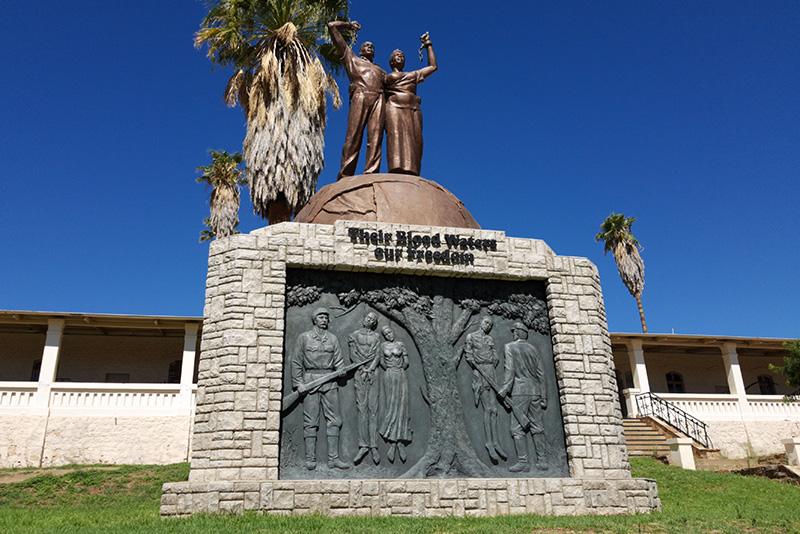Dubbed “Germany’s forgotten genocide”, and described by historians as the first genocide of the 20th Century, the systematic murder of more than 70,000 Africans is being marked with a National Day of Remembrance for the first time in Namibia.
Almost 40 years before their use in the Holocaust, concentration camps and pseudoscientific experiments were used by German officials to torture and kill people in what was then called South West Africa.
The victims, primarily from the Ovaherero and Nama communities, were targeted because they refused to let the colonisers take their land and cattle.
Genocide Remembrance Day in Namibia on Wednesday, follows years of pressure on Germany to pay reparations.
The new, national holiday will be marked each year as part of Namibia’s “journey of healing,” including a minute’s silence and candlelight vigil outside parliament in Windhoek, according to the government.
It said it chose the date of May 28, because it was on that day in 1907 that German officials announced the closure of the concentration camps following international criticism.
Control over South West Africa, along with what is now Cameroon, Togo, and other colonial territories was stripped from Germany by competing powers after World War One.
For many years, Germany did not publicly acknowledge the mass slaughter that took place between 1904 and 1908.
But four years ago, it formally recognised that German colonisers had committed genocide, and offered € 1.1 billion (£940m, $1.34bn) in development aid to be paid out over 30 years, with no mention of “reparations” or “compensation” in the legal wording.
Namibia declined that offer, calling it “a first step in the right direction” that nonetheless had failed to include the formal apology and “reparations” it was seeking.
Related Articles:
- Ambassadors condemn alleged European inciting comment against Africans
- Red carded Bimenyimana spoils Namibia’s celebrations
- On slave trade day, Obaseki urges global efforts against trafficking
Many Namibians were not impressed by what they saw.
“That was the joke of the century,” Uahimisa Kaapehi told the BBC at the time. “We want our land. Money is nothing.”
He is an ethnic Ovaherero descendent and town councillor in Swakopmund, where many of the atrocities took place, and said, “our wealth was taken, the farms, the cattle”.
A group representing genocide victims’ families was also scathing about the deal offered in 2021, calling it evidence of a “racist mindset on the part of Germany and neo-colonial subservience on the part of Namibia” in a joint statement.
Since then, a draft deal has been reached between the two nations that would include a formal apology given by Germany, and which would reportedly increase the overall sum by an extra €50 million.
But many Ovaherero and Nama campaigners say the deal is an insult to their ancestors’ memory and that they were unfairly excluded from the negotiating table.
News of a National Day of Remembrance been met with cynicism from some, with community activists saying restorative justice is still a long way off.
Many campaigners would like to see the German government buy back ancestral lands now in the hands of the German-speaking community and return them to the Ovaherero and Nama descendants.






